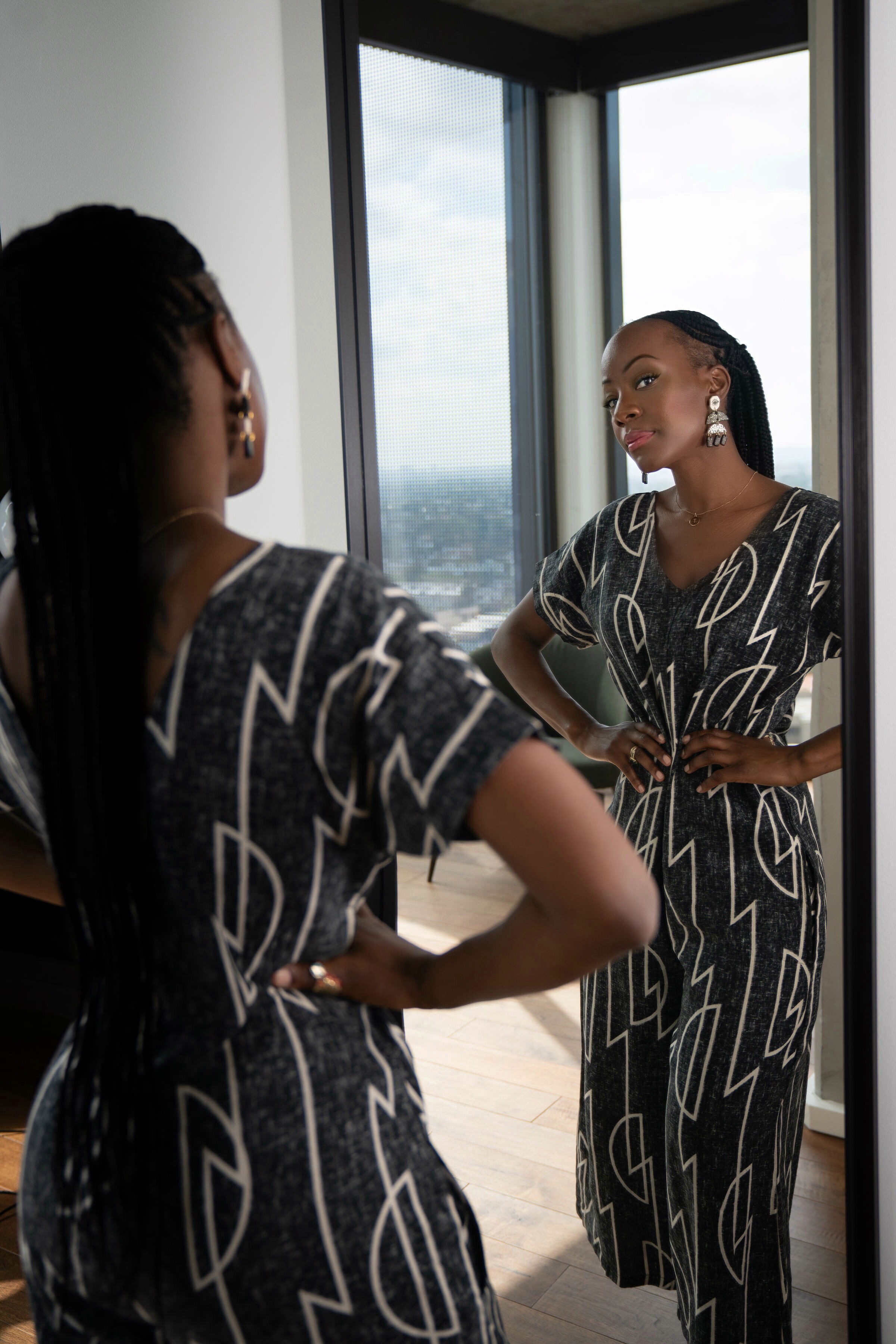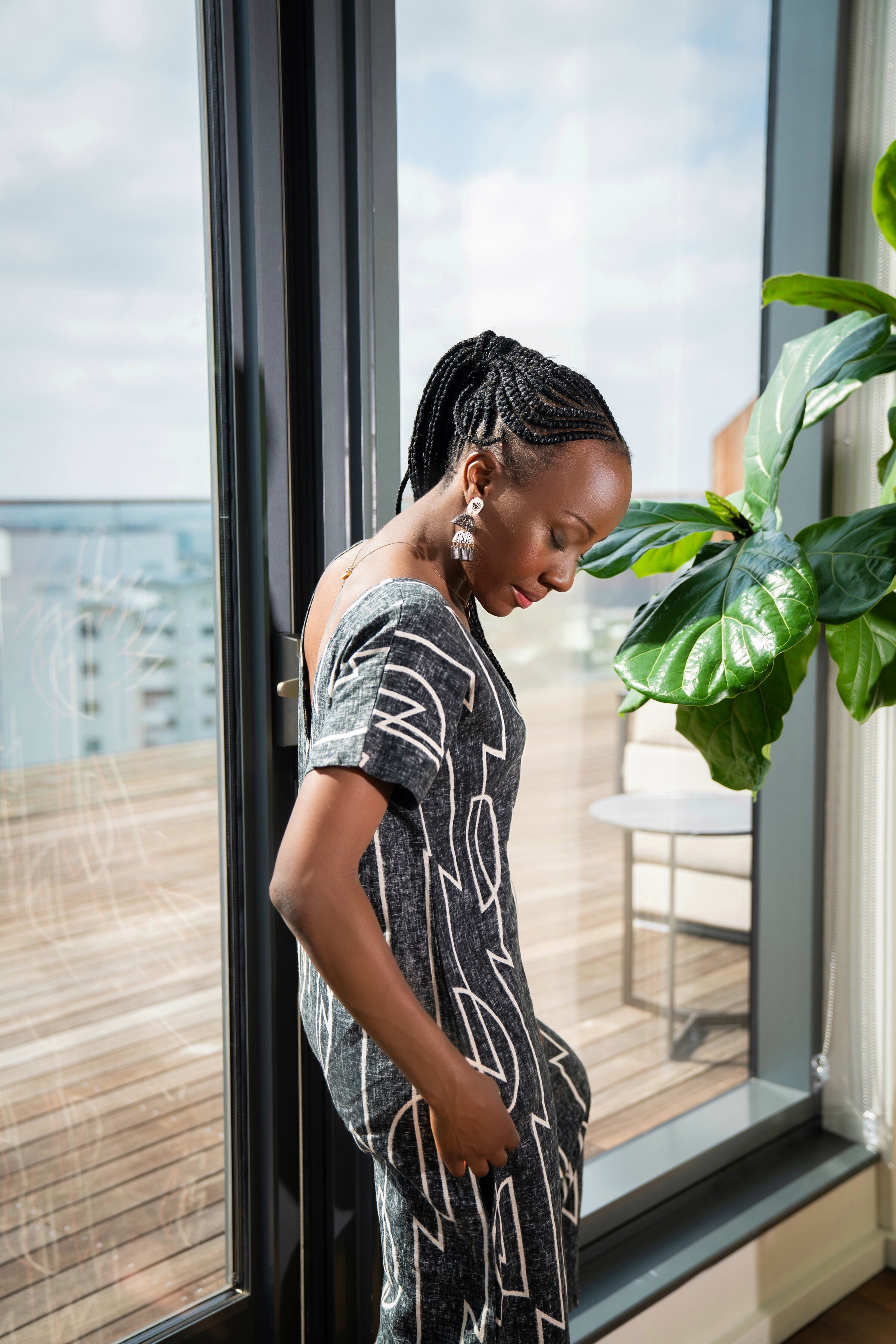Meet our new eco-favourite for prints and effortless glamour, BEL KAZAN. A womenswearbrand based in LA’s Echo Park, Bel Kazan is a quick-to-love brand, trust us! Designed with modern women in mind: empowered, adventurous, independent spirits. Inspiration is taken from around the globe to create bold prints and effortless silhouettes that easily take wearers from day to night, and quickly become wardrobe staples.
Every BEL KAZAN garment is crafted in the brands’ own factory in Bali, respectfully using traditional techniques for an authentic aesthetic. Using time-honoured methods such as hand printing and batik, a wax stamping art form that dates back to the sixth century with its design process, fabric choices, and the art of creating each print by hand, the pieces stand out for their quality and silhouette – your perfect day to night wardrobe piece, an absolute must for any serious eco-fashion advocate. BEL KAZAN delivers some real sustainable gems with its offering, thoughtfully designed to have a minimal footprint, with a meticulous selection of fabrics, dyes, and other materials. We love how honest they are too, the brand is clear that they remain on a learning curve and so remain responsive enough to adjust their production model to be as kind as possible to the environment. I caught up with Belinda Kazanci, the wonder woman behind sustainable fashion’s emerging champion brand, read our interview below…
Please introduce yourself and tell us a little about your brand?
I am Belinda Kazanci, founder and director of BEL KAZAN. Our pieces are made with modern women in mind: empowered, adventurous, independent spirits. Inspiration is taken from around the globe to create original prints and effortless silhouettes that easily take wearers from day to night, and quickly become wardrobe staples. Every BEL KAZAN garment is crafted in our personally-constructed factory in Bali, using traditional techniques for an authentic, timeless feel. Every collection is thoughtfully designed to have a minimal footprint. We carefully select our fabrics, dyes, and other materials, and because we’re constantly learning, we also regularly adjust our production model to be as kind as possible to the environment.
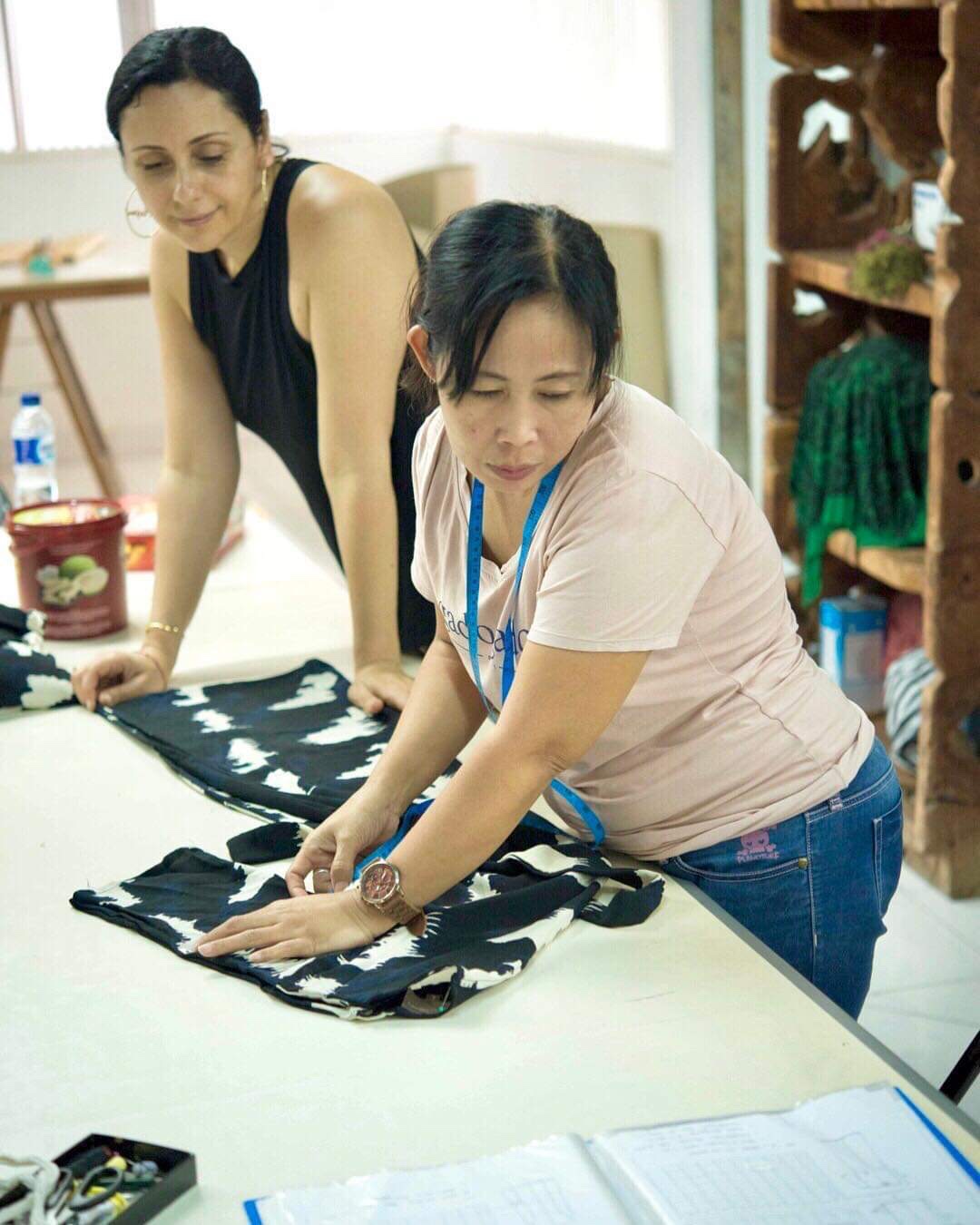
Today my time is split between the BEL KAZAN production facility in Bali and our flagship store in Los Angeles. I am committed to giving back to the culture and people that gave me a renewed sense of purpose.
How would you describe the vision for your brand?
I founded this brand after a life-changing journey to Bali, Indonesia. From the delicate flower offerings that lined the streets to their vibrant textiles and joyful spirits, I felt an unparalleled sense of inspiration among the Balinese people. It was then that I decided to uproot my life in Los Angeles, determined to make my vision of a socially and environmentally responsible apparel line real.
How do you approach sustainability/transparency with Bel Kazan?
We pride ourselves in abiding by a lean production model, we’re a cut-to-order business, which means that we don’t make a bunch of garments in the hopes of selling them all. Instead, we make sample sets every season and show them to our clients, who then put their orders in so we can go into production. Even items in our online shop are cut and sewn after an order has been placed, which allows us to purchase only the fabric yardage we really need, reducing waste.
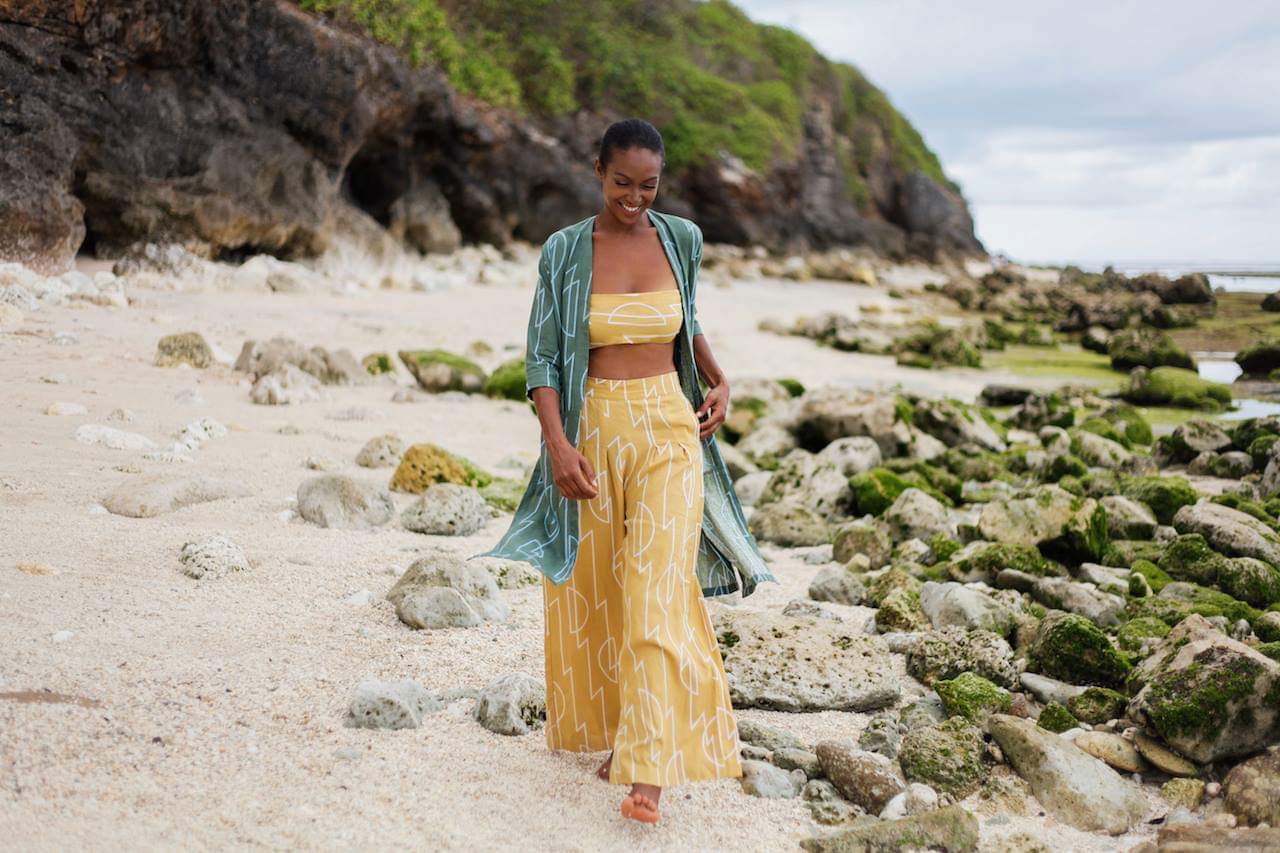
Plus, since we own our factory, we don’t have any high minimums to adhere to—most companies have to make at least 100 pieces per style, leading to lots of unsold stock and squandered materials.
Any leftover fabric we do have gets upcycled into children’s clothing that gets donated to local villagers in need, or turned into floor mats and pillow stuffing so that nothing goes to landfill.
Our vision has always been to be a socially-responsible, environmentally-kind company. That means that, starting in 2019, our fabric choices will have an even softer impact on the planet. We’ll be using organic & ramie cottons as well as tencel We currently use linen and our rayon spandex is made from lenzing at an OEKO-TEX 100 certified mill. Their certification means they’re not only free of harmful chemicals, but also that the fibers were organically grown according to strict guidelines accounting for environmental management and social responsibility.
What more do you think customers are looking for these days beyond good design? Or do you think that design is really all that matters?
I believe the customers are educating themselves on ethical practices, sustainability, and transparency. More and more customers want to support businesses that are taking action and being honest about their efforts. Until ethical fashion is the new normal we will continue to push the message that fashion can be responsible and sustainable. The design will always matter because the fashion industry is incredibly competitive in the sense that the customer also wants the latest and greatest. The design is a huge part of that but we choose to create timeless pieces that can be staples in a women’s wardrobe. Customers who choose to support ethical brands are creating a new demand and shifting the industry.
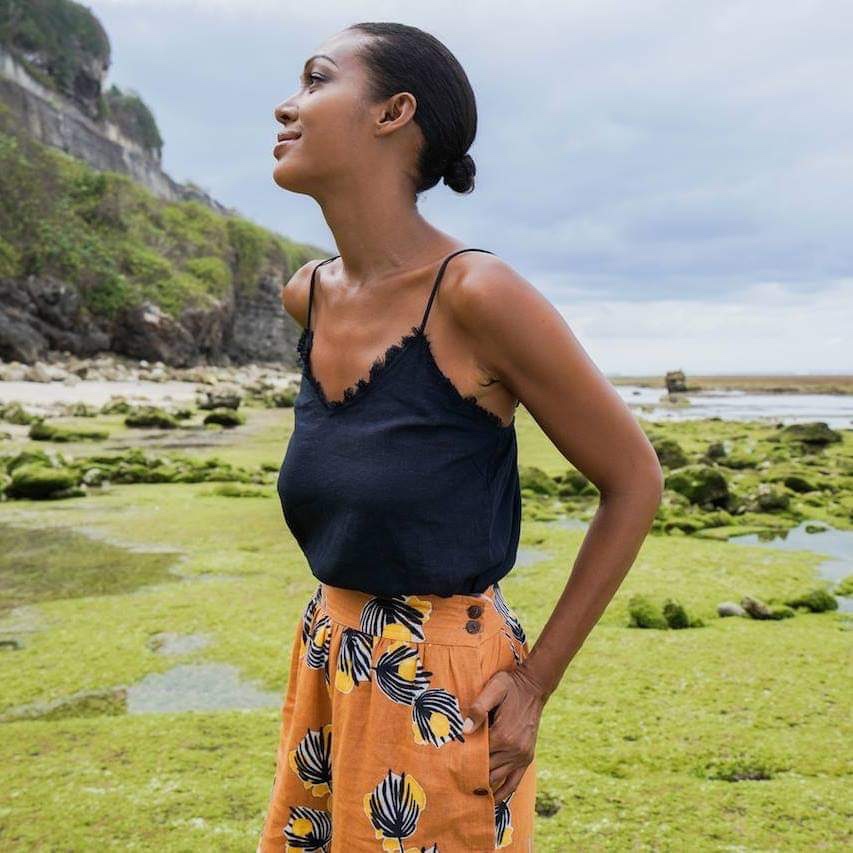
How do you ensure product quality as you grow?
We recently celebrated our 15-year anniversary of working with the same Balinese team—we consider ourselves a family now. They are a skilled team of artisans that make sure we only produce the highest of quality garments. We are blessed to work with such wonderful, dedicated people, and as we continue to grow, our goal is to continuously give back to the culture and people that give Bali its beauty.
We bought land and built our factory from the ground up (literally). The factory is managed by husband and wife duo Komang and Made (mah-day), who not only helped with construction, but also assisted with staffing by bringing in fellow residents from their village, Klung Kung.
Most had no experience in the garment and manufacturing business to support their professional goals—Made included. We paid for her fashion schooling, and now she is not only a master pattern maker, she’s also our Sample Manager, who truly makes all of our designs come to life.
We also developed a skill-training program so that employees could develop marketable expertise in hemming, sewing, fabric-cutting, pattern-making, beading, and quality control. When we realized that women make up 85% of all garment industry workers—many of whom have children who need supervision while they’re at work—we established policies to ensure that local craftswomen could work out of their homes in order to care for their children.
We even offer loan plans so that employees can borrow company cash (which slowly gets paid back through each paycheck) to make big purchases that make their lives easier, like a motorcycle, which is the most common mode of transport in Bali. Also, all BEL KAZAN employees receive a living wage that’s 50% higher than industry average in Bali.
To make a long story short – we invested in our team and they, in turn, provide the best work and quality garments you can find.
What were the biggest challenges you faced when trying to grow an ethical brand like Bel Kazan?
It is always a challenge getting information about the fabrics we are purchasing to make sure they are really sustainable and do come from factories that are using eco-conscious practices. Doing business in Indonesia is tough sometimes in this way as the information is not readily available so we have to do a lot of our own research. We want to provide pieces that are affordable to our customers but being ethical brand means our costs are higher. Until sustainable practices are the norm in our society and the demand is higher the prices will not go down. Lets hope ethical clothing becomes as common as organic produce.
Find out more about Bel Kazan here.
